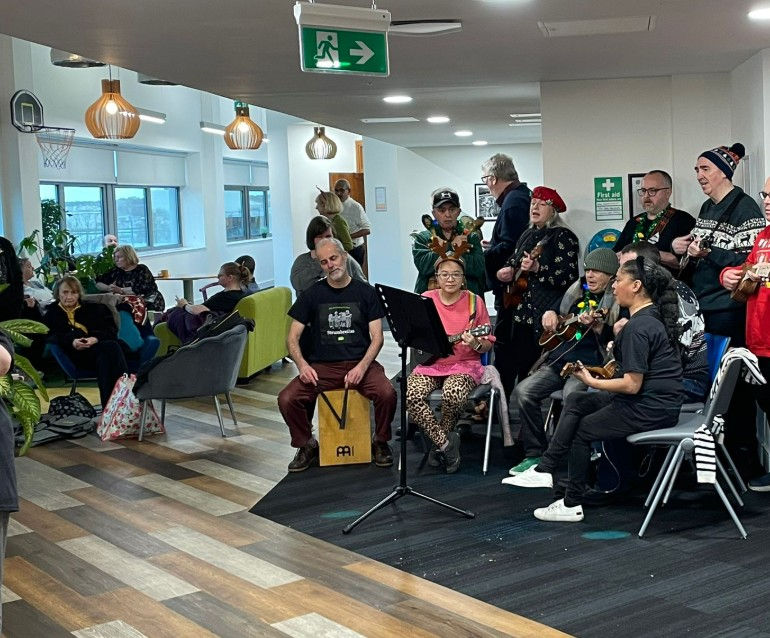Feeling SAD?
- Upbeat Liverpool
- Dec 6, 2023
- 3 min read
It’s natural that, when winter closes in, we all feel ourselves wanting to hide away and hibernate.
However, for some of us, the seasonal change in winter can leave us feeling very, unexplainably low.
We may experience a lack of sleep, a decline in energy and motivation and find that our appetite drastically decreases or increases.
This onset of symptoms may be more than just the ‘winter blues’ – in fact, it could be a sign of Seasonal Affective Disorder (SAD).

SAD is a type of depression which follows a seasonal pattern. Typically, people who experience SAD find their episodes of depression tend to occur around the same time each year, usually around winter.
So why does SAD happen? Although the exact cause of SAD is not known it is linked to our reduced exposure to sunlight during the shorter days and darker months.
Melatonin, a sleep – related hormone, is naturally made when it is darker. This explains why during winter months we feel more tired, more drowsy and more ready to sleep.
The low level of sunshine also means we are absorbing less Vitamin D. Vitamin D is required to produce serotonin, a hormone which helps stabilise our mood. A lack of Vitamin D can mean we are more at risk to infections and illnesses as it can compromise our immune system.
As with any kind of depression SAD can be difficult to live with. There is help to be had however, with treatments available that can help the severity of your symptoms.
Light Therapy
Light therapy involves sitting by a special lamp called a light box. Light boxes are designed to give a therapeutic dose of bright light which mimics an outdoor light.
You can buy a light box without prescription, but it is always best to follow the guidance of your health care provider to make sure it is suitable for you.
Therapy
A type of therapy known as Cognitive Behavioural Therapy (CBT) can help you find new healthy ways to cope and regulate emotions.
CBT helps challenge negative thoughts and to learn new skills and strategies to better cope with future stressors. Although CBT is not an overnight process it can be very successful in treating SAD.
Medication
Antidepressants are commonly prescribed to treat SAD as they both share many similar symptoms. Antidepressants work by increasing the level of serotonin in your brain which, in turn, helps lifts your mood.
It’s important to be aware that antidepressants can take 4 – 6 weeks to take full effect and therefore a GP may recommend taking them a few weeks before symptoms begin.
Please note - although medication really helps some people it may not be the right choice for others. It’s important that you have a discussion with your GP so you can make an informed choice.
Self Care
Putting your wellbeing first may sound like a challenge when you’re feeling rundown but little, gentle activities can make a lot of difference. Did you know just ten minutes outside can boost your mood? Just a small stroll in the park can be enough to reenergise us.
Planning and attending enjoyable social activities are always a pleasant way to pass the time and keep low moods at bay. Here at PSS Wellbeing Centres we have a range of activities in the run up to Christmas, have a look and see what we have in store on the upbeatliverpool.com homepage.
Ensuring that you are getting enough sleep, that you’re eating well and that you’re staying connected with people are all acts of self-care which will help you during SAD affected seasons.
If you feel you have symptoms of SAD visit your GP or speak to a mental health professional.
For more news and information about SAD visit: www.sada.org.uk



